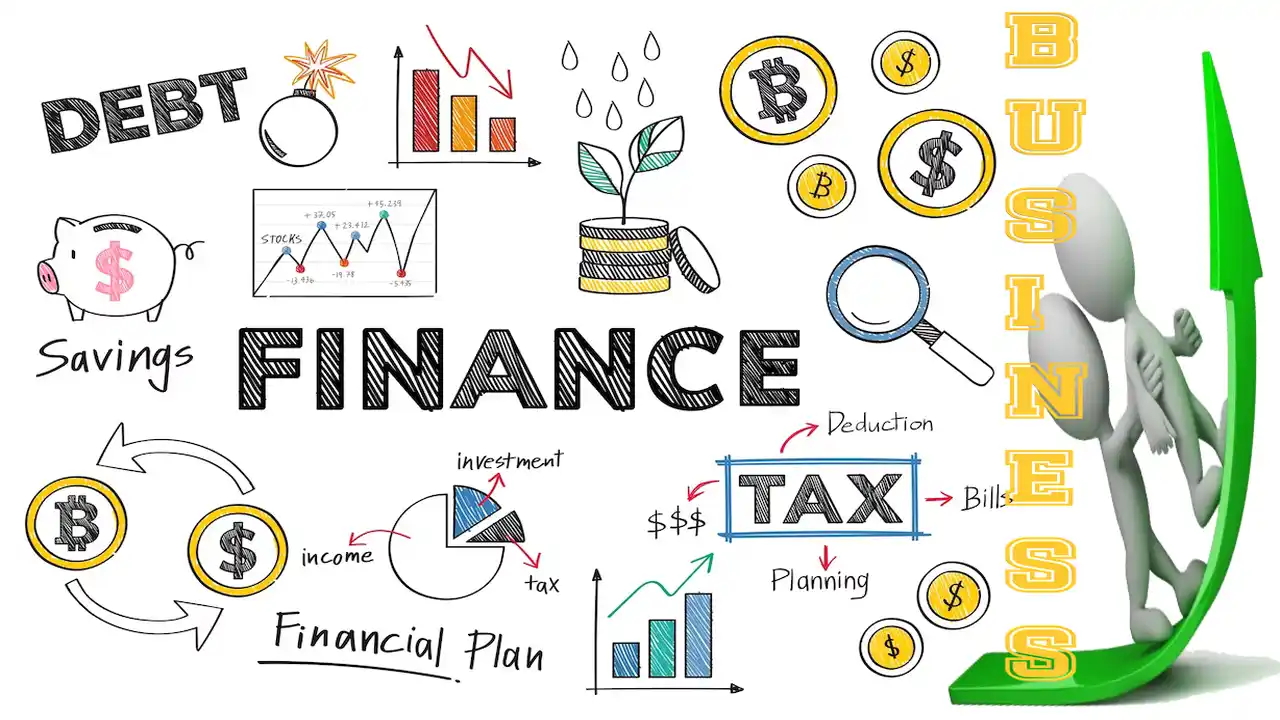The company is expanding thanks to the capital market. The efficient distribution of resources is made possible by the various actors in the capital market. The movement of investment capital is quantitatively and qualitatively controlled by these groups. This is possible because they have turned their money into tangible, tradable goods. As a result, public and private sector commercial and manufacturing activity rises, which contributes to economic growth. Read on to learn more about importance of capital market and become the subject matter expert on it.
An integral part of the monetary system, a capital market facilitates the transfer of savings from savers to those who are in need of funding. A variety of financial instruments and strategies allow for these transfers of capital to take place. This class includes money market assets, bonds (sovereign and non-sovereign), securitized assets (like mortgage-backed securities), mutual fund shares, and common/preferential stock. The risk-takers in these ventures are the people who put their money into them. Read more deeply to learn more about the classification of capital market topic.
Importance of Capital Market
On rare cases, the confidence that economists have in the efficiency of the market is proven to be incorrect. The financial crisis has tested this faith in the market’s capacity to operate as intended. The financial markets are a prime example of this. In other words, the same markets that were once believed to be extraordinarily efficient due to the rapid dissemination of information and the ability of market players to fix prices with relative ease. The importance of capital market include:
The Secondary Market
On the secondary market, investors buy and sell securities already in circulation or previously launched. The resale of newly issued securities following their sale on the main market requires a quick and effective mechanism. Individuals who buy and sell assets on secondary markets have the opportunity to trade or sell such assets again. The goods being purchased or sold also makes a big influence in the capital market. Both of these types of markets are known as the stock market and the bond market, respectively.
Markets for Stocks
On financial markets, companies can sell their shares. A company’s stock that is bought and sold on a market outside of its home country is known as a foreign equity market. A lot of big companies want to cash in on the global financial hubs by selling shares in big markets to finance their activities in smaller markets all around the globe.
Global Markets for Bonds
The most common kind of debt instrument is the bond, which is effectively a loan from the bondholder to the issuing bank. The foreign bond market is where all bonds issued by entities other than the issuer’s home country are sold. This includes corporations, governments, and other sorts of groupings. To avoid diluting the ownership stake of existing shareholders, businesses that are short on funds sometimes turn to bonds or debt financing instead of issuing additional stock shares. International bond markets are attractive investment opportunities for companies for several reasons. They may, for instance, be expanding their activities in one or more countries or building a new plant.The sentence says:
Financial Markets in Europe
Fearing a political backlash from the United States, communist governments in Eastern Europe in the 1950s avoided investing in American banks. Eurocurrency markets launched. Communist nations deposited dollars in receptive European banks, easing concerns and solving problems. The use of US dollars by European banks during this time gave birth to the “Eurodollar.” Japan and Canada were among the countries whose banks started holding US dollar accounts at some point. Any dollar invested in a bank other than the US government is now considered a Eurodollar.
Trinidad and Tobago’s Capital Market
Already, T&T has made significant strides in enhancing the efficiency of its stock exchanges. In the latter half of 2018 and all through 2019, the stock and bond markets saw a plethora of initial public offerings (IPOs) and bond issues. For instance, investors’ enthusiasm for the corporate debt market is supported by the fact that the 2018 National Investment Fund (NIF) bonds backed by shares in companies such as Republic Bank, WITCO, and Angostura were oversubscribed. Lending from businesses is likely to persist, suggesting a healthy market for investments like these.
Outside Investment
Capital markets provide access to funds from outside the nation. Businesses in India have the option to issue bonds and other forms of securities to attract investors from outside the country. For foreign direct investment (FDI), the government has lowered barriers. This is a boon to the economy since it brings in much-needed foreign capital and technology.
Long-term Funding
Establishing a capital market or stock exchange enables companies to secure long-term funds. Although businesses will always have a need for finance, investors will never be able to guarantee the safety of their funds forever. There is no longer any potential for bias on the part of investors due to the stock market’s ability to purchase and sell shares. Additionally, the stock market makes sure that these investors don’t lose their money in the long run.
Capital Market Expansion Hurdles
The extent of economic and infrastructure development affects a country’s ability to establish a capital market and the time it takes to do so. Additionally, there is risk in the stock markets. Changes in domestic and global financial conditions could trigger the inflow and outflow of foreign capital. This has the potential to significantly affect economic growth if not managed properly. The COVID-19 pandemic is just one more thing that needs fixing before the stock markets can recover.
Main Auction
Buying and selling newly issued securities and stocks takes place on the primary market. On the primary market, a company provides new securities to investors (buyers) in return for money. A primary market describes this sort of marketplace. Stocks and other newly issued securities that are available for trade to investors are the focus of this article.
Progress in Industrialization
Transporting resources to the industrial sector of the economy, the stock exchange acts as a central market. When this type of organization is in place, people are more likely to invest in things that have the potential to generate a profit. In addition to boosting the economy, this helps the manufacturing sector by lowering the barriers to saving and investing in company stock.
FAQ
For the Long Run, What’s the Wisest Investment?
Anyone serious about building wealth over time must have equity funds, which are mutual funds that invest in the stock market. Incorporating various stocks and businesses into these long-term investment strategies aimed to capitalize on emerging stock market movements.
Capital Market Domain – what is It?
On the other hand, the debt market buys and sells short-term debt. The capital market transacts assets backed by equity or with maturities longer than a year.
Worldwide Financial Marketplaces are What?
To put it simply, the Global Capital Markets are a place where individuals can save and trade money. Payments made by individuals are the main examples of “capital” nowadays. Pension funds, hedge funds, and other interest-seeking enterprises are also potential sources of funding.
Final Words
The question of whether capital markets are subject to restrictions analogous to those in the banking industry remains open, according to recent studies. This is so even though a plethora of research has shown that there are inherent constraints in the banking sector that, if crossed, could hinder economic expansion. Take a recent study by the Bank of International Settlements (BIS) as an example. It found that once financial market activity reaches a certain point, further rise in activity, as measured by share turnover, does not help economic growth and may even slow it down. We hope you found this guide, in which we explained importance of capital market, informative and useful.






